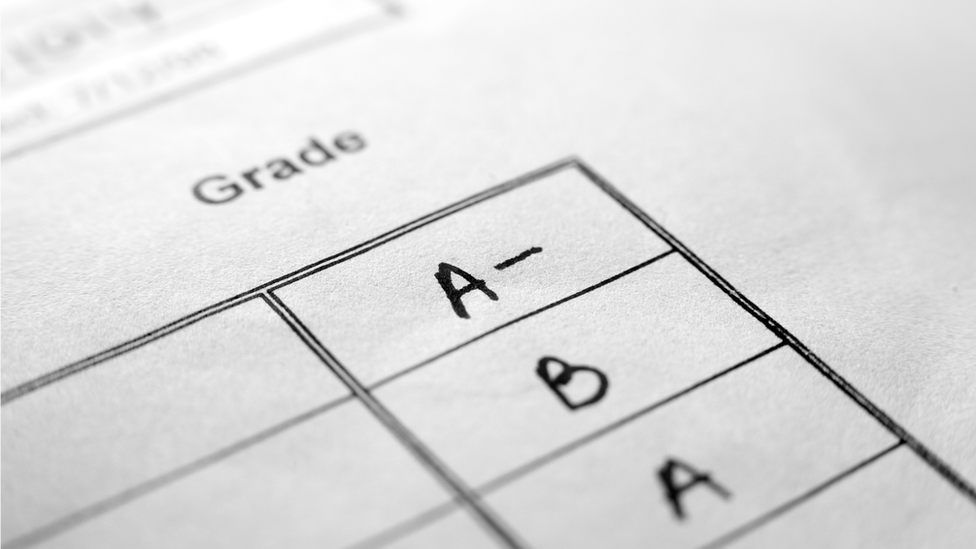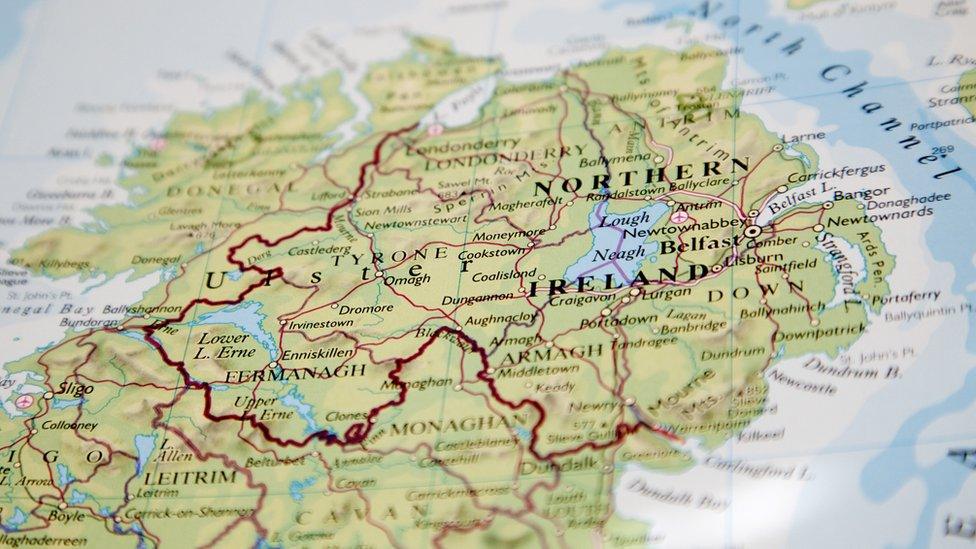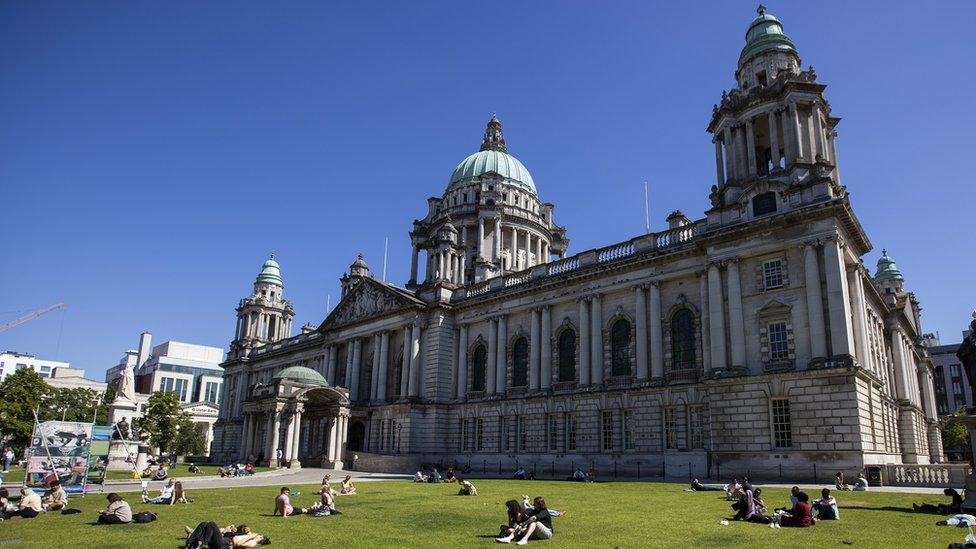Census 2021: No qualifications for 24% of over 16s in NI
- Published

Of 1.5 million people aged 16 and over, 361,000, or 24%, said they had no qualifications - academic or professional
Nearly a quarter of people aged over 16 in Northern Ireland have no qualifications, according to the latest census figures.
Of 1.5 million people aged 16 and over, 361,000 (24%), were recorded as having no qualifications - academic or professional.
However, this was down from 29% in the previous census of 2011.
The latest March 2021 census, external also included for the first time a question about sexual orientation.
On Tuesday, it emerged that nearly a third in the 2021 census indicated they had a degree or equivalent level in education.
At 32%, that was up from 24% in the 2011 census.
The remaining percentage of people in 2021 had other qualifications or been through an apprenticeship.
According to the figures, 56.1% of adults in Northern Ireland were employed - more than in Wales, but less than in England.
Some 42,000 people said they were unemployed.
At 2.8%, that is thought to be one of the lowest unemployment rates recorded in the census, and it's down from more than 10% in 1991.
In addition to those who were employed and unemployed, 41.2% of the 1.5 million adults who responded were economically inactive as of 2021.
This includes being retired, long-term sick or disabled.

The current estimate of the population in Northern Ireland is about 1.9 million
Further societal shifts were identified in responses around marital status.
Fewer people were married than in previous years, while more were single or divorced.
Some 46% of Northern Ireland's adult population said they were married or in a civil partnership - down from 61% who were married in 1971.
The number of divorced adults has risen from 3,000 in 1971 to more than 90,000 in 2021.
The figures, released by the Northern Ireland Statistics and Research Agency (Nisra), showed that 2.1% of people aged 16 and over identified as LGB+, meaning lesbian, gay, bisexual, or other sexual orientation.
This compared to 3% in Wales, and 3.2% in England.
'Meaningful first step'
More urban areas, like Belfast and Derry City and Strabane council areas, were home to a higher percentage of people who identified as LGB+.
The figures suggested that one in 25 adults in Belfast were lesbian, gay, bisexual or other sexual orientation.
A higher proportion of younger age groups identify as LGB+.
Some 8% of adults did not state their sexual orientation - either ticking "prefer not to say" or simply not answering the question - while 90% said they were straight or heterosexual.
The Rainbow Project, which promotes the health and wellbeing of LGBTQIA+ people and their families in Northern Ireland, described the release of the census figures as a "meaningful first step", but said it was disappointed that no questions on gender identity were posed.
According to Nisra, there was a response rate of 97% to the 2021 census.
Tuesday's set of figures marked the final release of results, covering topics including qualifications, sexual orientation, the labour market and marital status.
Last year, it was reported that Northern Ireland's population had risen to almost two million people, according to the results of the 2021 census.
The total of 1.9 million is the highest figure recorded since Northern Ireland was established in 1921.
Related topics
- Published15 December 2022

- Published22 September 2022

- Published24 May 2022
